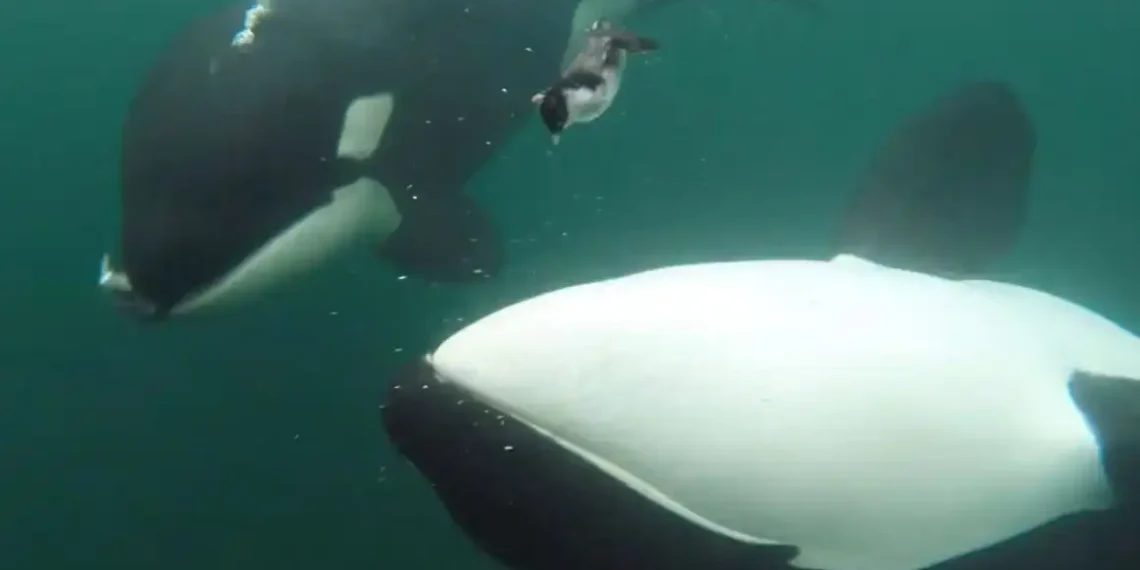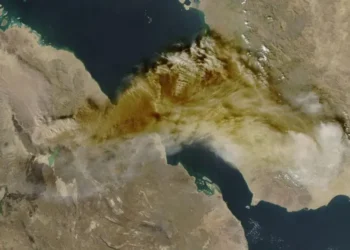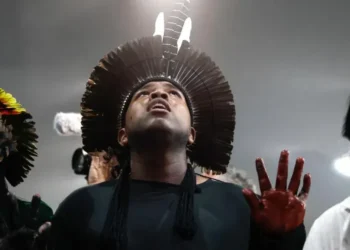Orcas Are Offering Humans Gifts — And Scientists Are Searching for Answers
ALERT BAY, British Columbia — A surprising pattern of killer whales offering dead animals to humans has left researchers both fascinated and puzzled. Over the past two decades, marine biologists have documented dozens of cases of orcas presenting gifts — including birds, seals, and fish — to people in the water or on boats. Now, scientists are working to understand what motivates this unusual and seemingly deliberate behavior.
Underwater Encounters Reveal Mysterious Gifting Behavior
Marine biologist Jared Towers, executive director of Bay Cetology in British Columbia, first observed this phenomenon while filming a young orca and her brother. To his astonishment, the juvenile female approached the underwater camera, opened her mouth, and released a dead seabird, appearing to wait for a reaction before eventually swallowing it again.
Years later, Towers witnessed a different young orca drop a freshly killed harbor seal pup beside his boat. As he shared his experience with colleagues globally, a broader trend emerged.
Towers and his team compiled 34 documented instances between 2004 and 2024 in which killer whales appeared to offer food to humans. Their findings were recently published in the Journal of Comparative Psychology, marking the first systematic look at the behavior.
Are Orcas Trying to Communicate?
Researchers remain cautious in their conclusions, but several theories have emerged. Some believe the whales may be exhibiting curiosity, testing how humans respond to their offerings. Others see the behavior as exploratory — part of the orcas’ process of learning about humans.
Less likely, but not ruled out, is the idea that these offerings mirror hunting tactics used by orcas to lure other animals. However, there are no known cases of wild killer whales attacking or killing humans.
“It’s difficult to point to a single cause,” said Towers. “The simplest explanation is that they can afford to give us food — and they may be doing so to explore who we are.”
Global, Widespread, and Not Limited to Age or Gender
What makes the findings even more striking is how universal the behavior seems to be. The documented cases span multiple locations and involve both male and female orcas, from calves to fully grown adults.
In nearly every instance, the whales paused to wait for a human response after presenting the food. Most eventually retrieved the offering or tried again. Humans rarely accepted the gifts — and in the few instances where they did, the items were typically returned to the water.
This pattern, researchers say, aligns with the orcas’ known curiosity and complex social intelligence.
Gift-Giving in the Animal Kingdom
Gift-giving is not unknown in nature — cats often present dead animals to their owners, and some animals share food with each other. But cases of wild predators offering food to humans are exceedingly rare. Only a handful of incidents involving false killer whales (a type of dolphin) and leopard seals have ever been recorded.
“It’s not completely unexpected,” said Hanne Strager, author of The Killer Whale Journals. “Anyone who’s spent time on the water with orcas has experienced their curiosity. You can feel there’s some kind of interaction happening.”
A Glimpse Into Orca Intelligence
Killer whales are among the most intelligent animals on Earth. The study notes that only humans have larger brains relative to body size. Orcas also regularly hunt animals larger than themselves, often leaving them with surplus food.
Some researchers, like behavioral ecologist Philippa Brakes of the University of Exeter, suggest the whales’ actions might stem from complex cognitive functions. Orcas are believed to possess spindle neurons — cells associated with empathy and social behavior in humans and great apes.
While motivations remain speculative, Brakes suggested the behavior could be altruistic or a learned caregiving gesture, similar to how an adult might feed a young animal.
A Deeper Connection — and a Cautionary Reminder
The research reinforces a growing understanding that killer whales frequently initiate contact with humans and boats — and may be actively seeking interaction.
For Towers, the findings highlight more than just scientific curiosity. They reflect the evolving relationship between species and raise important ethical questions.
“While humans are clearly the most technologically advanced species on Earth,” he said, “we share the planet with other highly intelligent beings. Their welfare should factor into how we choose to coexist.”
This article was rewritten by JournosNews.com based on verified reporting from trusted sources. The content has been independently reviewed, fact-checked, and edited for accuracy, neutrality, tone, and global readability in accordance with Google News and AdSense standards.
All opinions, quotes, or statements from contributors, experts, or sourced organizations do not necessarily reflect the views of JournosNews.com. JournosNews.com maintains full editorial independence from any external funders, sponsors, or organizations.
Stay informed with JournosNews.com — your trusted source for verified global reporting and in-depth analysis. Follow us on Google News, BlueSky, and X for real-time updates.














